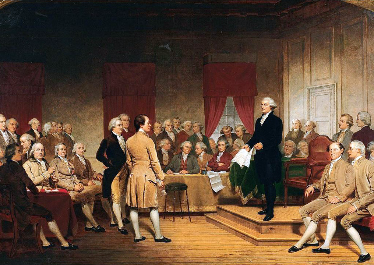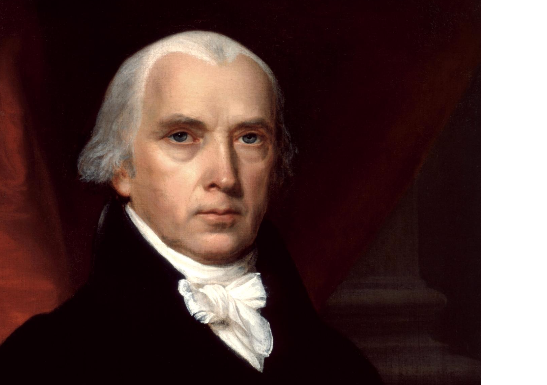WHAT HAPPENED


The Obamacare ruling proved devastating to the rule of law for another reason. It contained a fatal flaw. At its core was a presumption that imperfect human beings can be trusted with unlimited power.

The founders knew something else about power. They knew that never, ever, is it content to serve its intended beneficiary. They understood this to be a consequence of power's predatory nature. They knew that domination and control are in its DNA. They were aware that power, like an alpha wolf, would rip freedom's throat out if given the opportunity.

The convention's immediate purpose was to institute a national government for the newly-formed United States of America. Prominent among its participants were George Washington and James Madison.
The Supreme Court affirmed the constitutionality of the Affordable Care Act, a.k.a. Obamacare, on June 28, 2012. Its ruling ordained that the federal government may dictate the life and death healthcare choices of 320 million Americans.
The Obamacare ruling was an instant game-changer. It gave unelected, unaccountable bureaucrats the authority to substitute their whims for the professional judgment of medical specialists. In doing so, our nation's highest court of law joined a grotesquely-partisan Congress and a double-talking White House in the most lawless, fraudulent power grab in our history.
Its validation of the government's theft of power nowhere granted in the Constitution of the United States was lethal to the rule of law. Compounding the injury was its corollary that the government could use this stolen power virtually without limitation.
America's founders viewed things differently. They were aware of unlimited power's toxic side effects. Perhaps the most virulent of these, they well knew, was its tendency to increase the potential for evil, while diminishing the capacity for good, in every human heart. For this reason, they accepted that not even the most compassionate of humans could ever be trusted with such power.
They viewed the relationship between unlimited power and freedom very differently, as well. Their experience with King George III had taught them that such power is always freedom's fiercest foe. Their study of history proved beyond dispute that poverty, misery, and captivity are the predictable - if unintended - results of its use.
The Obamacare court was indifferent to the social carnage certain to result from this aspect of power. It seemed clueless that patriotic Americans had fought a long, bloody revolution to free themselves from the control of their colonial masters two centuries earlier.
These patriots knew their hard-won freedom would require protection. It was a desire to preserve that freedom which prompted them to call for the Constitutional Convention of 1787.
These two Virginians, along with 53 other delegates from twelve sovereign states, shared an existential concern about the dangers of concentrated power. Their concern was well expressed in a warning often attributed to Washington that "government is not reason, it is not eloquence, it is force, like fire, a troublesome servant and a fearful master. Never for a moment should it be left to irresponsible action."
The Constitutional Convention's ultimate goal was to establish a balance between individual liberty and social order. Towards this end, its delegates sought to create a federal government that was strong enough to secure the rights of its citizens, but not so strong as to deprive the states of their independence or the people of their rightful role as master, not servant, of that government.
The Constitution's principal architect, James Madison, proved himself more than equal to the challenge of balancing order and liberty. He premised the Constitution's design upon his conviction that the government's power must be strictly limited and widely separated among executive, legislative, and judicial branches. He also incorporated into his design a belief that America's survival as a democratic republic would require the states and their citizens to remain eternally vigilant in defending their vast, retained powers.
Without those constraints, Madison believed the federal government would inevitably force the states and their citizens back into the captivity from which they had only recently escaped. He managed to thwart this return to servitude by precisely calibrating the government's lawful power and restricting its legitimate authority. In so doing, he secured the blessings of liberty for successive generations of Americans for well over 200 years. Until now.



